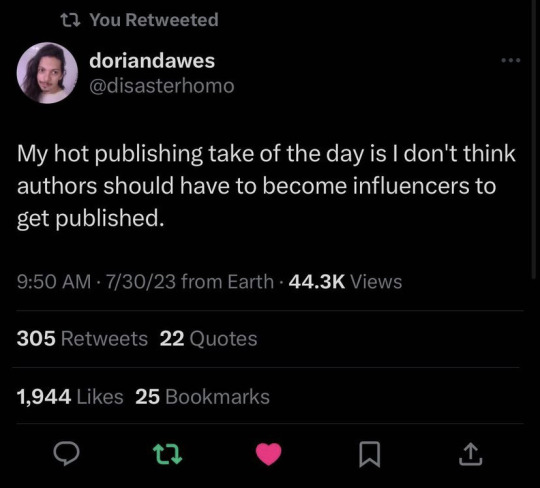#publishing
Text
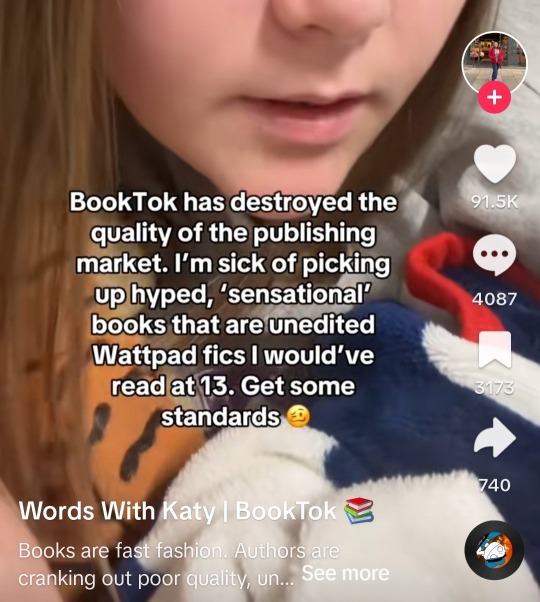
AND THEY’RE FUCKING CORRECT
41K notes
·
View notes
Text
This is a friendly reminder to never, ever publish your book with a publishing company that charges you to publish with them. That is a vanity press, which makes money by preying on authors. They charge you for editing, formatting, cover art, and more. With most of these companies, you will never seen a cent of any royalties made from sale of your book. A legitimate publishing company only makes money when you make money, they will never charge you to publish with them. If a company approaches you and says "Hey, we'll publish your book, just pay us X amount of money," tell them to go fuck themself and block them.
49K notes
·
View notes
Text
As per my last post, if yall arent aware — Cait Corrain, the author of the upcoming Crown of Starlight made a bunch of fake accounts on Goodreads to review-bomb other debut authors, almost entirely BIPOC, with 1 star while 5-starring her own book. She also added traditionally published debut authors to a list derogatorily labeling them as "self-published" hacks. She went after random books that are Greek mythology retellings, like her own is, and again targeted BIPOC authors. She even targeted my good friend RM Virtues, who is an indie author who writes queer Black Greek myth reimaginings.
Many of those she attacked were people who considered her a colleague and friend. She's tried to spin a lie about how she's being framed by someone from her Reylo fandom days, but Reylos have disproven that already.
Cait allegedly liked to brag about how her publisher treated her like royalty, and she had a massive Illumicrate deal. Her book was also getting favorable advanced reviews and had a beautiful cover, so she had nothing to be jealous of. She's potentially destroyed her career due to racism alone. Do not buy her book and do not support her.
Here is a thread if you want specifics and here is the 31-page doc of evidence.
#havent seen this on tumblr really so#in case you all weren't aware#this is gravely serious#mine#publishing#writing#author#books#cait corrain#crown of starlight
8K notes
·
View notes
Text
I keep seeing posts talking about the WGA/Sag-Aftra strike, which yes, good, but in all this "support writers" sentiment I'm seeing no one talk about book writers, which I think is something people should know more about right now.
We are at an all-time high for book bans, namely targeting queer & PoC-authored books. This means that a lot of schools and libraries are no longer stocking diverse YA books, and if you're not in publishing, you may not realize this but school & libraries are by far one of the biggest markets for diverse YA books.
This means that in 2023, YA book sales are down. This is also in part because Barnes & Noble (the largest physical book retailer in the U.S.) is no longer really stocking YA hardcovers. This means that marginalized authors and debut authors are struggling to sell books.
But it's a LOT worse than that. In the past couple of years, marginalized authors are *really* struggling to get new book deals. Most books are acquired by a publisher about 2 years before they release to the public, so this isn't all that noticeable yet, but a LOT of marginalized authors I've spoken to (myself included) have been unable to sell a new YA book since 2020. So while I had a book out last year, even if I sell one right now, you won't see it until 2025-2026. That's three to four years without a new release or the income I get from publishing those books.
On top of that, Big 5 publishers have started closing imprints (namely their diverse imprints) and have started telling their marginalized YA authors to just go. I've had multiple authors tell me their publisher basically said, "eh, we don't care to put in the work for you anymore. You can just go somewhere else". Of the authors who *are* getting offered new contracts, we're being offered pay far below the cost of living and we're being handed contracts that split our payments 4 or 5 ways and require we sign over our work to be used to train AI so they can replace us a few years down the road.
Authors are freelancers who own our IPs, which means we can't unionize the way Hollywood writers can, and despite authors showing up in droves to support HarperCollins employees when they went on strike for fair wages, we're being hung out to dry when it comes to our own rights.
If you enjoy diverse books, especially diverse YA, please understand that many of the authors you loved over the past 3-5 years are being forced out of the industry. We're being exploited, and we have no way to defend ourselves. Our books sales are drying up thanks to anti-queer legislation, our rights are being eaten up by AI, and our publishers are degrading us while profiting of us and refusing to share those profits with us.
Within the publishing industry, we've all been watching this decline happen over the last decade, but outside of it, I know most people have no idea what's going on so please spread the word. And if you care about diverse books especially in YA, please support marginalized authors in any way you can. The industry needs to be reminded that it needs us before we're all eliminated from it.
#Books#diverse books#author#publishing#sag aftra#writers strike#writers#labor rights#workers rights#wga strike
7K notes
·
View notes
Video
🤷♂️publishing can’t ask us to write bestsellers for them on no money
#video#tiktok#tiktoks#story time#wtf#publishing#book#books#writer#writers#author#authors#iron widow#heavenly tyrant#zachary ying and the dragon emperor#xiran jay zhao#xiranjayzhao
13K notes
·
View notes
Text
I was already on a hair trigger today trying not to snap at a mutual for reblogging a "fuck authors who use Amazon" post, but, like, this shit is why some authors can only afford to use Amazon.
They don't have the $75+ to distribute through Ingram Spark. They don't have the $25 it takes to change your files if you need to update them after they've been accepted. They can't afford to take the cost of printing hit to their sales. They can't afford to lose an additional 40% of their income to retailer discounts.
And just so we're clear, Ingram isn't a vanity publisher. They're one of the largest print monopolies in the world. They're used by most mainstream traditional publishers and indie and self-pub authors alike. Amazon uses them when their print demand is too high.
My friend, whose work is published by Gollancz, is printed through Ingram, the same as mine. The difference is their publisher takes the hit for them. In theory. We won't get into dwindling advances here or how publishers are increasingly putting the onus of marketing and sales onto their authors or the fact that their editors can't afford rent or food while the executives get richer and richer.
So what do you do when the mainstream doesn't want you? What do you do when you're told if you can't keep up with the rat race, that you don't deserve to have your work published? What do you do if all you have is the ability to tell stories for a living, and no one wants you?
Well, you could die of starvation. I'm sure there are several people on here who'd be happy if that happened to me. (I know. Because they tell me. Often.) Or, you can shake hands with the devil, knowing it's a bum deal, knowing everything is fucked, but also knowing that every other aspect of this fucking industry is just as fucking bad.
There's no escape. It's relentless.
And you've got people out there posting things like, "Actually, I think authors who charge for their books are part of the problem."
And yeah, in an ideal world, I'd be making art for art's sake.
But we're not in that world. We're in the bad place, and you're actively making it worse. You're encouraging people to steal from people who are struggling just like you and calling it activism against billionaires or putting them in the same moral category as said billionaires as though we're not trapped in this system, same as you. Some of you are fellow fucking authors. And, like, my mind boggles at what it would take to stab a fellow creative in the back like that, but here we are.
Hell world.
#long post#vent post#publishing#author stuff I get#anyone clowning on this post gets put in the wood chipper
4K notes
·
View notes
Text
My secret to actually finishing publishing projects is that when I don't feel like working on them, I procrastinate by pissing around with the innumerable tiny housekeeping tasks associated with the project that would otherwise bring things to a crashing halt at the 99% mark, so that when I eventually do get to the 99% mark, they're already done.
Like, you don't feel like actually writing the thing?
Screw around with the layout and formatting of your credits and copyright notices page.
Put together a spec for an illustration you imagine you might one day commission, if you ever find yourself in possession of a budget.
Fire up your graphic design software and compose a completely unnecessary diagram or visual aid.
Tinker with the wording of the promotional blurb on the itch.io page you set up in a previous bout of procrastination even though the product doesn't actually exist yet.
Any non-trivial publishing project has a billion peripheral little tasks that need taking care of, most of them sufficiently small and sufficiently different from Writing The Thing that you can probably convince your brain that doing them when you "should" be writing counts as procrastinating – and that list may look a lot less intimidating when it's framed less as "a billion things I Have To Do" and more as "a billion things I can distract myself with to avoid actually writing".
5K notes
·
View notes
Text
UPDATE!!!!! Warning for NSFW writers!
ETA: UPDATE!!!!
We have been informed that the NSFW nature of the doc in question was NOT the reason it was pulled. It was affected because it had been shared with a large number of people and went against the spam rules.
We're hoping that editing the original post will help stop the spread of misinformation, but we also realize that reblogs of previous reblogs will not include this addition. Deleting the original post won't get rid of those reblogs, either. We can only hope that the correct information gets spread farther and wider than the initial panic.
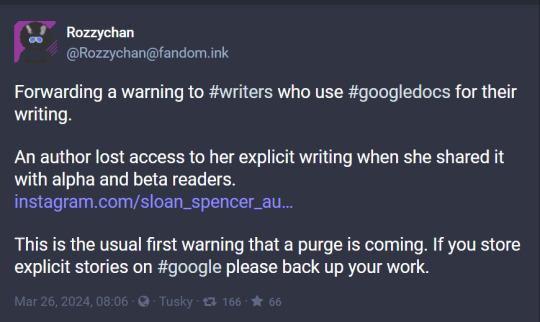
This was brought to our attention today. We would ALWAYS recommend keeping your writing in two places, for many reasons, but here is one more!
2K notes
·
View notes
Text
About A Civil Dawn
A Civil Dawn is a nonprofit publishing company focused on ensuring the creation of media which is educational and positive representation for LGBTQIA+ and neurodivergent people. We aim to do this by enabling and amplifying creators whose work aligns with our mission and goals. Our current focus is on web comic creators but we are excited for future projects like publishing zines and graphic novels, children's books, and other media from creators who match with our mission and values.
This blog will be used for announcements about the company, reblogs of content from our creators and other posts which align with our goals, and original posts and links to content created within ACD. Please feel free to send asks and DMs but please direct any business inquiries or non-Tumblr related discourse to us at [email protected].
This post will be updated as we add to the below list of creators who we work with: @brooke2valley @alienbycomics @kaylasartwork @deadeyedfae @welldrawnfish
Manifesto
To be a person is to overcome Ick - trauma, fear, pain, and shame. By shining a light and promising hope we will reduce and heal the collective Ick to make the world brighter for everyone.
Because everyone deserves hope.
Mission
Reaching out to hearts and minds to wipe away Ick and empowering great people to reach even farther.
Values
Broadcast Hope
Partner for Good
Foster Understanding
Represent Everyone
1K notes
·
View notes
Text
The majority of censorship is self-censorship

I'm on tour with my new novel The Bezzle! Catch me TONIGHT in SAN DIEGO (Feb 22, Mysterious Galaxy). After that, it's LA (Saturday night, with Adam Conover), Seattle (Monday, with Neal Stephenson), then Portland, Phoenix and more!

I know a lot of polymaths, but Ada Palmer takes the cake: brilliant science fiction writer, brilliant historian, brilliant librettist, brilliant singer, and then some:
https://pluralistic.net/2022/02/10/monopoly-begets-monopoly/#terra-ignota
Palmer is a friend and a colleague. In 2018, she, Adrian Johns and I collaborated on "Censorship, Information Control, & Information Revolutions from Printing Press to Internet," a series of grad seminars at the U Chicago History department (where Ada is a tenured prof, specializing in the Inquisition and Renaissance forbidden knowledge):
https://ifk.uchicago.edu/research/faculty-fellow-projects/censorship-information-control-information-revolutions-from-printing-press/
The project had its origins in a party game that Ada and I used to play at SF conventions: Ada would describe a way that the Inquisitions' censors attacked the printing press, and I'd find an extremely parallel maneuver from governments, the entertainment industry or other entities from the much more recent history of internet censorship battles.
With the seminars, we took it to the next level. Each 3h long session featured a roster of speakers from many disciplines, explaining everything from how encryption works to how white nationalists who were radicalized in Vietnam formed an armored-car robbery gang to finance modems and Apple ][+s to link up neo-Nazis across the USA.
We borrowed the structure of these sessions from science fiction conventions, home to a very specific kind of panel that doesn't always work, but when it does, it's fantastic. It was a natural choice: after all, Ada and I know each other through science fiction.
Even if you're not an sf person, you've probably heard of the Hugo Awards, the most prestigious awards in the field, voted on each year by attendees of the annual World Science Fiction Convention (Worldcon). And even if you're not an sf fan, you might have heard about a scandal involving the Hugo Awards, which were held last year in China, a first:
https://www.nbcnews.com/news/world/science-fiction-authors-excluded-hugo-awards-china-rcna139134
A little background: each year's Worldcon is run by a committee of volunteers. These volunteers put together bids to host the Worldcon, and canvass Worldcon attendees to vote in favor of their bid. For many years, a group of Chinese fans attempted to field a successful bid to host a Worldcon, and, eventually, they won.
At the time, there were many concerns: about traveling to a country with a poor human rights record and a reputation for censorship, and about the logistics of customary Worldcon attendees getting visas. During this debate, many international fans pointed to the poor human rights record in the USA (which has hosted the vast majority of Worldcons since their inception), and the absolute ghastly rigmarole the US government subjects many foreign visitors to when they seek visas to come to the US for conventions.
Whatever side of this debate you came down on, it couldn't be denied that the Chinese Worldcon rang a lot of alarm-bells. Communications were spotty, and then the con was unceremoniously rescheduled for months after the original scheduled date, without any good explanation. Rumors swirled of Chinese petty officials muscling their way into the con's administration.
But the real alarm bells started clanging after the Hugo Award ceremony. Normally, after the Hugos are given out, attendees are given paper handouts tallying the nominations and votes, and those numbers are also simultaneously published online. Technically, the Hugo committee has a grace period of some weeks before this data must be published, but at every Worldcon I've attended over the past 30+ years, I left the Hugos with a data-sheet in my hand.
Then, in early December, at the very last moment, the Hugo committee released its data – and all hell broke loose. Numerous, acclaimed works had been unilaterally "disqualified" from the ballot. Many of these were written by writers from the Chinese diaspora, but some works – like an episode of Neil Gaiman's Sandman – were seemingly unconnected to any national considerations.
Readers and writers erupted in outrage, demanding to know what had happened. The Hugo administrators – Americans and Canadians who'd volunteered in those roles for many years and were widely viewed as being members in good standing of the community – were either silent or responded with rude and insulting remarks. One thing they didn't do was explain themselves.
The absence of facts left a void that rumors and speculation rushed in to fill. Stories of Chinese official censorship swirled online, and along with them, a kind of I-told-you-so: China should never have been home to a Worldcon, the country's authoritarian national politics are fundamentally incompatible with a literary festival.
As the outrage mounted and the scandal breached from the confines of science fiction fans and writers to the wider world, more details kept emerging. A damning set of internal leaks revealed that it was those long-serving American and Canadian volunteers who decided to censor the ballot. They did so out of a vague sense that the Chinese state would visit some unspecified sanction on the con if politically unpalatable works appeared on the Hugo ballot. Incredibly, they even compiled clumsy dossiers on nominees, disqualifying one nominee out of a mistaken belief that he had once visited Tibet (it was actually Nepal).
There's no evidence that the Chinese state asked these people to do this. Likewise, it wasn't pressure from the Chinese state that caused them to throw out hundreds of ballots cast by Chinese fans, whom they believed were voting for a "slate" of works (it's not clear if this is the case, but slate voting is permitted under Hugo rules).
All this has raised many questions about the future of the Hugo Awards, and the status of the awards that were given in China. There's widespread concern that Chinese fans involved with the con may face state retaliation due to the negative press that these shenanigans stirred up.
But there's also a lot of questions about censorship, and the nature of both state and private censorship, and the relationship between the two. These are questions that Ada is extremely well-poised to answer; indeed, they're the subject of her book-in-progress, entitled Why We Censor: from the Inquisition to the Internet.
In a magisterial essay for Reactor, Palmer stakes out her central thesis: "The majority of censorship is self-censorship, but the majority of self-censorship is intentionally cultivated by an outside power":
https://reactormag.com/tools-for-thinking-about-censorship/
States – even very powerful states – that wish to censor lack the resources to accomplish totalizing censorship of the sort depicted in Nineteen Eighty-Four. They can't go from house to house, searching every nook and cranny for copies of forbidden literature. The only way to kill an idea is to stop people from expressing it in the first place. Convincing people to censor themselves is, "dollar for dollar and man-hour for man-hour, much cheaper and more impactful than anything else a censorious regime can do."
Ada invokes examples modern and ancient, including from her own area of specialty, the Inquisition and its treatment of Gailileo. The Inquistions didn't set out to silence Galileo. If that had been its objective, it could have just assassinated him. This was cheap, easy and reliable! Instead, the Inquisition persecuted Galileo, in a very high-profile manner, making him and his ideas far more famous.
But this isn't some early example of Inquisitorial Streisand Effect. The point of persecuting Galileo was to convince Descartes to self-censor, which he did. He took his manuscript back from the publisher and cut the sections the Inquisition was likely to find offensive. It wasn't just Descartes: "thousands of other major thinkers of the time wrote differently, spoke differently, chose different projects, and passed different ideas on to the next century because they self-censored after the Galileo trial."
This is direct self-censorship, where people are frightened into silencing themselves. But there's another form of censorship, which Ada calls "middlemen censorship." That's when someone other than the government censors a work because they fear what the government would do if they didn't. Think of Scholastic's cowardly decision to pull inclusive, LGBTQ books out of its book fair selections even though no one had ordered them to do so:
https://www.nytimes.com/2023/05/06/books/scholastic-book-racism-maggie-tokuda-hall.html
This is a form of censorship outsourcing, and it "multiplies the manpower of a censorship system by the number of individuals within its power." The censoring body doesn't need to hire people to search everyone's houses for offensive books – it can frighten editors, publishers, distributors, booksellers and librarians into suppressing the books in the first place.
This outsourcing blurs the line between state and private surveillance. Think about comics. After a series of high-profile Congressional hearings about the supposed danger of comics to impressionable young minds, the comics industry undertook a regime of self-censorship, through which the private Comics Code Authority would vet comings for "dangerous" content before allowing its seal of approval to appear on the comics' covers. Distributors and retailers refused to carry books without a CCA stamp, so publishers refused to publish books unless they could get a CCA stamp.
The CCA was unaccountable, capricious – and racist. By the 60s and 70s, it became clear that comic about Black characters were subjected to much tighter scrutiny than comics featuring white heroes. The CCA would reject "a drop of sweat on the forehead of a Black astronaut as 'too graphic' since it 'could be mistaken for blood.'" Every comic that got sent back by the CCA meant long, brutal reworkings by writers and illustrators to get them past the censors.
The US government never censored heroes like Black Panther, but the chain of events that created the CCA "middleman censors" made sure that Black Panther appeared in far fewer comics starring Marvel's most prominent Black character. An analysis of censorship that tries to draw a line between private and public censorship would say that the government played no role in Black Panther's banishment to obscurity – but without Congressional action, Black Panther would never have faced censorship.
This is why attempts to cleanly divide public and private censorship always break down. Many people will tell you that when Twitter or Facebook blocks content they disagree with, that's not censorship, since censorship is government action, and these are private actors. What they mean is that Twitter and Facebook censorship doesn't violate the First Amendment, but it's perfectly possible to infringe on free speech without violating the US Constitution. What's more, if the government fails to prevent monopolization of our speech forums – like social media – and also declines to offer its own public speech forums that are bound to respect the First Amendment, we can end up with government choices that produce an environment in which some ideas are suppressed wherever they might find an audience – all without violating the Constitution:
https://locusmag.com/2020/01/cory-doctorow-inaction-is-a-form-of-action/
The great censorious regimes of the past – the USSR, the Inquisition – left behind vast troves of bureaucratic records, and these records are full of complaints about the censors' lack of resources. They didn't have the manpower, the office space, the money or the power to erase the ideas they were ordered to suppress. As Ada notes, "In the period that Spain’s Inquisition was wildly out of Rome’s control, the Roman Inquisition even printed manuals to guide its Inquisitors on how to bluff their way through pretending they were on top of what Spain was doing!"
Censors have always done – and still do – their work not by wielding power, but by projecting it. Even the most powerful state actors are not powerful enough to truly censor, in the sense of confiscating every work expressing an idea and punishing everyone who creates such a work. Instead, when they rely on self-censorship, both by individuals and by intermediaries. When censors act to block one work and not another, or when they punish one transgressor while another is free to speak, it's tempting to think that they are following some arcane ruleset that defines when enforcement is strict and when it's weak. But the truth is, they censor erratically because they are too weak to censor comprehensively.
Spectacular acts of censorship and punishment are a performance, "to change the way people act and think." Censors "seek out actions that can cause the maximum number of people to notice and feel their presence, with a minimum of expense and manpower."
The censor can only succeed by convincing us to do their work for them. That's why drawing a line between state censorship and private censorship is such a misleading exercise. Censorship is, and always has been, a public-private partnership.

If you'd like an essay-formatted version of this post to read or share, here's a link to it on pluralistic.net, my surveillance-free, ad-free, tracker-free blog:
https://pluralistic.net/2024/02/22/self-censorship/#hugos
#pluralistic#ada palmer#worldcon#hugos#china#science fiction#fanac#publishing#censorship#systems of information control during information revolutions#scholarship
2K notes
·
View notes
Text
My Substack, now running a FREE series chronicling publishing misadventures, with advice for now because nothing has changed at all.
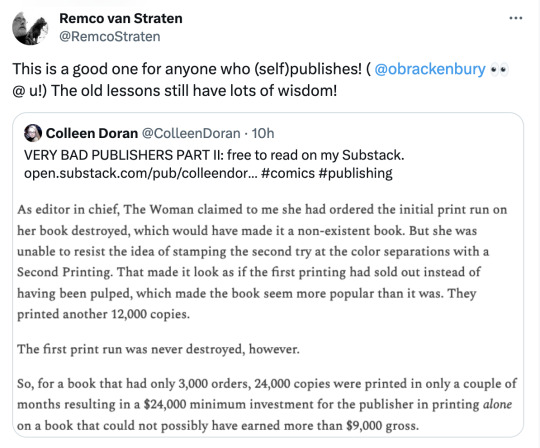
2K notes
·
View notes
Text
So, there's a dirty little secret in indie publishing a lot of people won't tell you, and if you aren't aware of it, self-publishing feels even scarier than it actually is.
There's a subset of self-published indie authors who write a ludicrous number of books a year, we're talking double digit releases of full novels, and these folks make a lot of money telling you how you can do the same thing. A lot of them feature in breathless puff pieces about how "competitive" self-publishing is as an industry now.
A lot of these authors aren't being completely honest with you, though. They'll give you secrets for time management and plotting and outlining and marketing and what have you. But the way they're able to write, edit, and publish 10+ books a year, by and large, is that they're hiring ghostwriters.
They're using upwork or fiverr to find people to outline, draft, edit, and market their books. Most of them, presumably, do write some of their own stuff! But many "prolific" indie writers are absolutely using ghostwriters to speed up their process, get higher Amazon best-seller ratings, and, bluntly, make more money faster.
When you see some godawful puff piece floating around about how some indie writer is thinking about having to start using AI to "stay competitive in self-publishing", the part the journalist isn't telling you is that the 'indie writer' in question is planning to use AI instead of paying some guy on Upwork to do the drafting.
If you are writing your books the old fashioned way and are trying to build a readerbase who cares about your work, you don't need to use AI to 'stay competitive', because you're not competing with these people. You're playing an entirely different game.
708 notes
·
View notes
Text

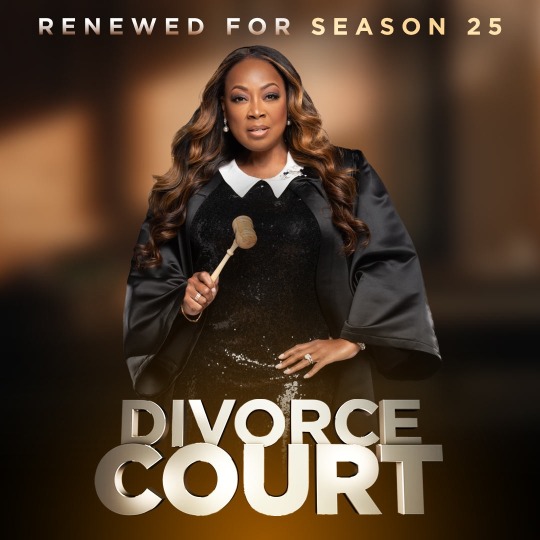
6K notes
·
View notes
Text
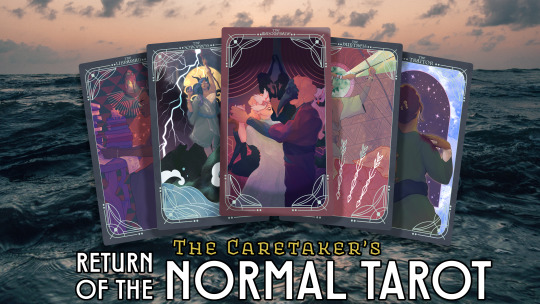
Alright alright... @cryptotheism / @normal-horoscopes, I think we've got one more in us.
The third edition of the Normal Tarot is coming... and it's coming March 5th. All-new, full-color illustrations by Ezra Kimbell, this deck will be the final version of the incredible Normal Tarot, designed by the Caretaker.
You can sign up to be notified of our launch on backerkit here!
Oh... What's that? Oh, okay, it won't be alone then.

@worm-dark, @charminglyantiquated y'all ready for the Gold and Silver decks to finally get reprints? I suppose it is about time, then. We'll have to make them cheaper than last time, to let the most people get a hold of one!
And... what?
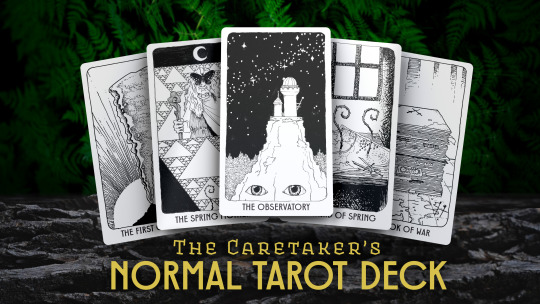
Alright alright, I hear you-- the 1st edition will also be there, in its clean black and white glory.
If you want to be there and be first, please join us here on the teaser page and signup to be notified, help us see how much interest we have! : )
#kickstarter#the normal tarot#normal tarot#tarot#oracle#divination#backerkit#crowdfunding#worm-dark#charminglyantiquated#caretaker#normal horoscopes#cryptotheism#publishing goblin#publishing#indie publishing
651 notes
·
View notes

